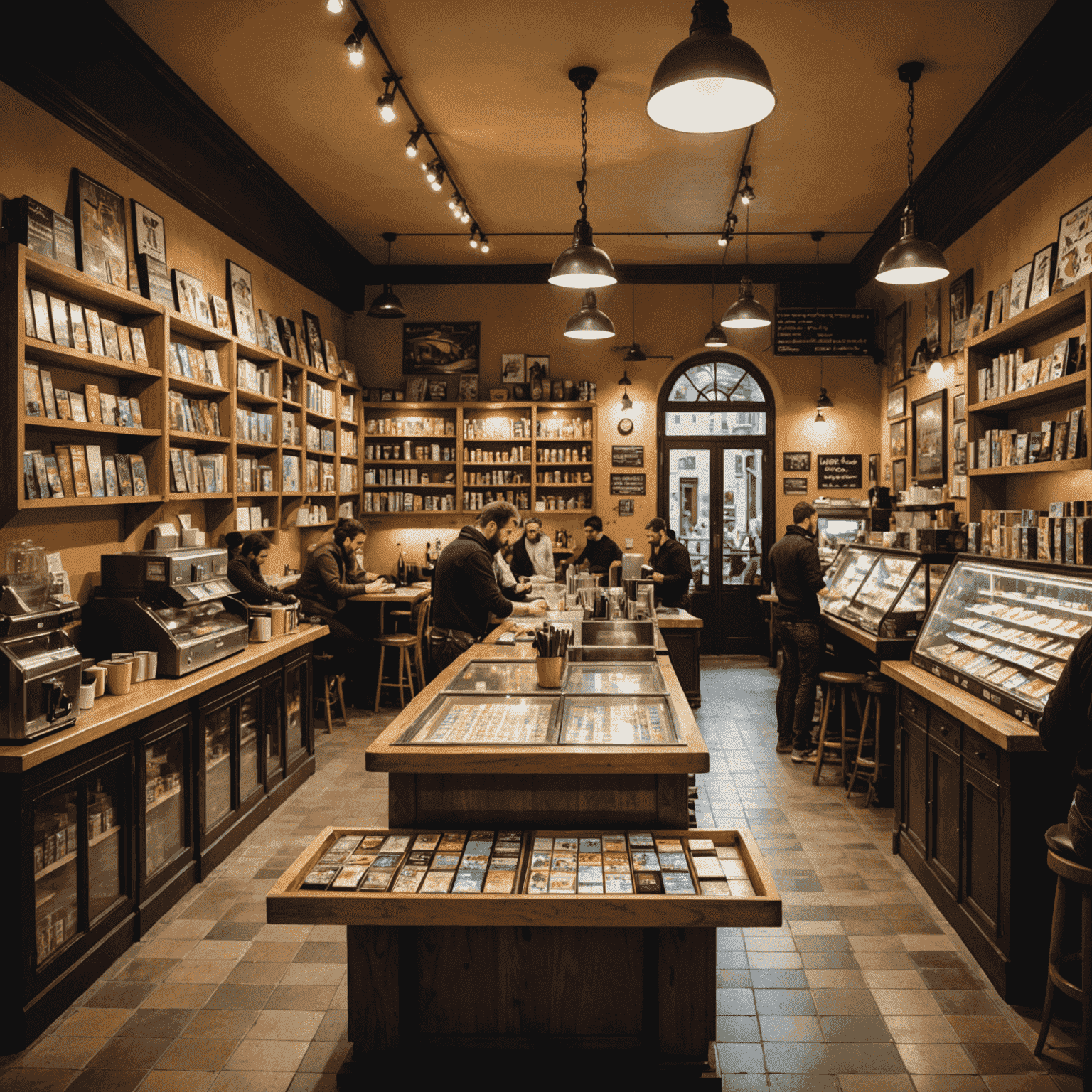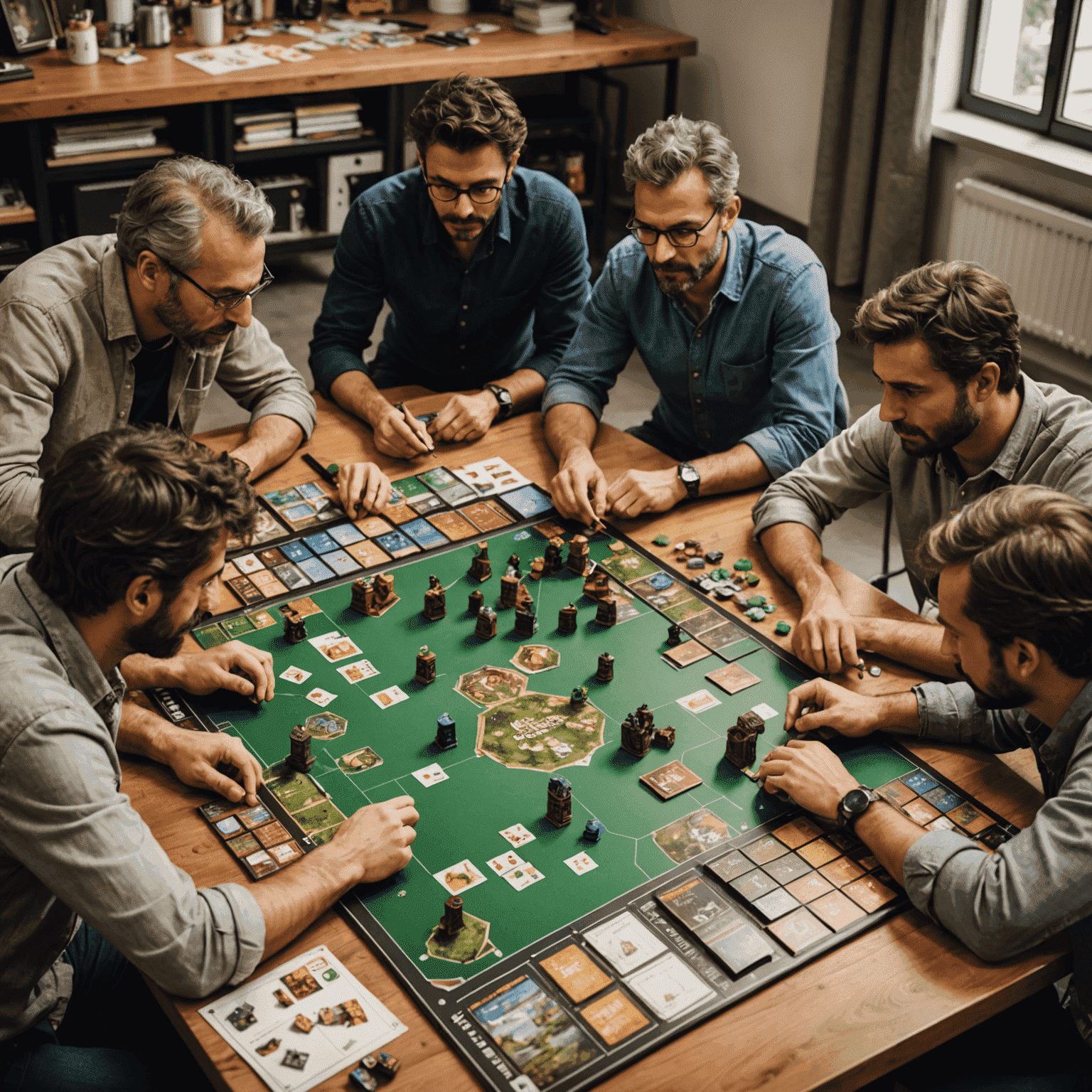Italian Board Game Renaissance: Exploring Italy's Thriving Gaming Culture

Italy, a country renowned for its rich cultural heritage, is experiencing a remarkable renaissance in the world of board games. This surge in popularity is not just a passing trend but a reflection of the nation's growing appreciation for strategic thinking and social interaction through gaming.
Local Game Designers Leading the Charge
At the forefront of this gaming revolution are Italian game designers who are making waves both domestically and internationally. Designers like Simone Luciani and Daniele Tascini have created critically acclaimed games such as "T'zolkin: The Mayan Calendar" and "The Voyages of Marco Polo," which blend Italian creativity with global themes.
These designers are not just creating games; they're crafting experiences that challenge players' logical thinking and spark creativity. Their success has inspired a new generation of Italian game creators, further fueling the country's board game industry.
Board Game Cafés: The New Social Hubs

Across Italy, board game cafés are becoming increasingly popular, serving as vibrant social hubs where enthusiasts gather to play, learn, and connect. These establishments, from Milan's "Taverna Ludica" to Rome's "Cliquot," offer extensive game libraries and often host tournaments and game nights.
These cafés provide a unique space where logical thinking is exercised through gameplay, and creativity flourishes in the discussions and strategies that unfold around the tables. They've become instrumental in introducing new players to the world of board gaming and fostering a sense of community among enthusiasts.
Annual Conventions: Celebrating the Gaming Spirit
Italy's board gaming culture reaches its peak during annual conventions like "Lucca Comics & Games" and "Play: Festival del Gioco" in Modena. These events attract thousands of visitors from across Europe and beyond, showcasing the latest games, hosting tournaments, and providing platforms for game designers to present their creations.
These conventions are not just marketplaces; they're incubators for new ideas and collaborations. They play a crucial role in promoting the development of logical thinking and creativity by exposing attendees to a wide array of games and gaming concepts.
The Educational Impact
The rise of board gaming in Italy has not gone unnoticed by educators. Many schools are now incorporating board games into their curriculum, recognizing their potential to enhance problem-solving skills, strategic thinking, and social interaction among students.
Games like "Carcassonne" and "Ticket to Ride" are being used to teach geography and planning, while more complex games like "Pandemic" are utilized to discuss global issues and cooperation.
Looking to the Future

As Italy's board game scene continues to flourish, it's clear that this renaissance is more than just a trend. It's a movement that's reshaping how Italians spend their leisure time, interact with one another, and approach problem-solving.
The future looks bright for Italy's gaming culture, with new designers emerging, more cafés opening, and an ever-growing community of players. This thriving ecosystem not only entertains but also continues to promote the development of logical thinking and creativity, ensuring that Italy remains at the forefront of the global board gaming landscape.